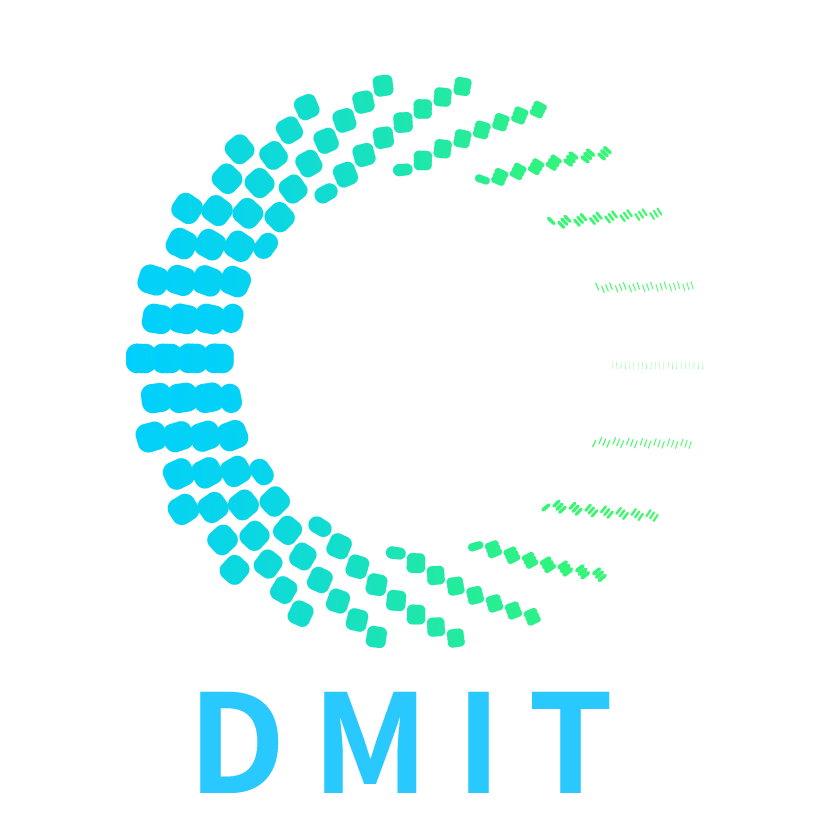| Prof. Gyu Myoung LeeIEEE Senior Member Biography: Gyu Myoung Lee joined the Liverpool John Moores University (LJMU), UK in 2014, as a Senior Lecture in the department of Computer Science and was promoted to a Reader in 2017 and a Professor in 2020. He was also with KAIST Institute for IT convergence, Daejeon, Rep. of Korea, as an Adjunct Professor from 2012 to 2024. Before joining the LJMU, he worked with the Institut Mines-Telecom, Telecom SudParis from 2008. Until 2012, he was invited to work with the Electronics and Telecommunications Research Institute (ETRI), Rep. of Korea. He worked as a research professor in KAIST, Rep. of Korea and as a guest researcher in National Institute of Standards and Technology (NIST), USA, in 2007. He worked as a visiting researcher in the University of Melbourne, Australia, in 2002. Furthermore, he also has work experiences in industries in Rep. of Korea. His research interests include Internet of Things, Web of Things, computational trust, knowledge centric networking and services considering all vertical services, Smart Grid, energy saving networks, cloud-based big data analytics platform and multimedia networking and services. Dr. Lee has been actively participating in standardization meetings including ITU-T SG 13 (Future networks and cloud) and SG20 (IoT and smart cities and communities), IETF and oneM2M, etc., and currently serves as a Working Party chair and the Rapporteur of Q16/13 (Knowledge centric trustworthy networking and services) and Q4/20 (e/Smart services, applications and supporting platforms) in ITU-T. He is also the chair of ITU-T Focus Group on Data Processing and Management (FG-DPM) to support IoT and smart cities & communities. He has contributed more than 400 proposals for standards and published more than 160 papers in academic journals and conferences. He received several Best Paper Awards in international and domestic conferences and served as a reviewer of IEEE journals/conference papers and an organizer/member of committee of international conferences. He is a Senior Member of IEEE. Dr. Lee received his BS degree in electronic and electrical engineering from Hong Ik University, Seoul, Rep. of Korea, in 1999 and MS, and PhD. degree from the Korea Advanced Institute of Science and Technology (KAIST), Daejeon, Rep. of Korea, in 2000 and 2007, respectively. Title: Towards Trustworthy AI-powered Decentralized Internet Abstract: Artificial Intelligence (AI) and the Internet of Things (IoT) are foundational technologies shaping the future digital society, and their convergence, known as Artificial Intelligence powered Internet of Things (AIoT), has attracted significant research attention. At the same time, data has become a critical asset for enabling AI-driven services and human-centric digital interactions. Blockchain technologies further contribute by providing decentralized mechanisms for trust, transparency, and value exchange. Against this backdrop, this talk introduces the key concepts, features, and architectural characteristics of the Decentralized Internet, often referred to as Web 3.0 or the Internet of Value, by examining the integration of emerging ICTs such as AIoT and blockchain, along with relevant initiatives including EU-led projects such as GAIA-X. While decentralization promises user-centric control over data and services, recent research has highlighted substantial challenges related to security, privacy, and trust. To address these challenges, this talk emphasizes the necessity of building a trustworthy AI-powered infrastructure for the decentralized Internet. Starting from a new economic paradigm for cyberspace and data ecosystems, it explores how AI-based trust technologies (e.g., intelligent trust management, decentralized governance, and automated assurance mechanisms, etc.) can mitigate the negative effects of decentralization. Finally, the talk presents future research directions toward realizing a trustworthy, user-centric, and value-oriented decentralized Internet that supports the sustainable growth of the digital economy. |
| Prof. Ts. Dr. Mazlina Abdul MajidIEEE Senior MemberUniversiti Malaysia Pahang Al-Sultan Abdullah (UMPSA) Biography: I am currently a Professor at Universiti Malaysia Pahang (UMP), which is rebranding to Universiti Malaysia Pahang Al-Sultan Abdullah (UMPSA) in Malaysia, with 23 years of experience as an academic lecturer at the Faculty of Computing, UMPSA. I received my PhD in Computer Science from the University of Nottingham, UK. I hold various responsibilities in administrative work, including serving as Deputy Dean of Research and Graduate Studies and Head of the Software Engineering Research Group. Currently, I am the Head of the Green Technology Research Lab and the Head of the Data Science and Simulation Modelling Research Group. I also serve as the Editorin-Chief for the International Journal of Computer Systems & Software Engineering at UMPSA. Due to my vast experience in teaching master's and undergraduate courses, I am a member of the academic program committees at UMPSA and other universities. My research work focuses on Operation Management using Simulation Modelling, Green Technology, Software Usability Testing, and Software Agent. I have published more than 200Â works in books, journals, and conference proceedings. Moreover, I have achieved excellence in research competitions, winning gold medals and various awards in local and international exhibitions. My outstanding performance in academics and research has been recognized both locally and internationally. |
 | Prof. Ravinder RenaDurban University of Technology (DUT) Biography: Professor, Dr Ravinder Rena is a profound academician and distinguished scholar in economics, writer, editor, adviser, motivational speaker, a respected global academic voice, and public intellectual with over 33 years of teaching and research experience in Asia-Pacific, Africa, and European continents. He has been an independent consultant and training expert. Prof Rena is currently working as a Professor of Economics, at Faculty of Management Sciences, Durban University of Technology (DUT), Durban, Republic of South Africa. He serves as an Adjunct Professor at the Department of Entrepreneurship and Business Management, Cape Peninsula University of Technology (CPUT), Cape Town, South Africa. He also serves as a Visiting Professor at the Academy of Engineering and Management, People’s Friendship (RUDN) University, Moscow, Russia and also serves as a Visiting Professor at the Department of World Economy, Faculty of Economics, Saint Petersburg State University, Russia. Further, he also serves as an Adjunct Professor of Economics at Monarch Business School (Monarch University, Hagendorn, Zug), Switzerland and Further, he works as a Visiting Professor for many Indonesian, Malaysian and Indian Universities notably Manipal University, Jaipur; the Sri Sri University, Cuttack; and a Distinguished Professor at the Sparsh Global Business School, New Delhi. He is the Founder and Managing Director of Rebuild, Reform, Research Foundation (RRRF).Besides, Prof Rena serves as the Honorary Country Director – South Africa for the International Internship University (IIU) and Igniting Dreams of Young Minds (IDYM) Global University, India. He acts as President – South Africa for the Yes You Can International (YCCI), UK. He also serves as the Global President – Economic Affairs, of the All India Sustainable Development Council (AISDC). He is an Advisor to the Vridhee InnovationsPrivate Ltd. He serves as a Peer Mentor to the KavachApp, India. Previously, he worked as a Professor of Economics and Internationalization Project Leader at the NWU Business School, North-West University, South Africa. He served as a Professor of Economics at the Department of Economics, University of the Western Cape, Cape Town, South Africa. He also served as a Professor and the Coordinator, of the Joint African Master's Programme (JAMP), Harold Pupkewitz Graduate School of Business at the Namibia University of Science and Technology (NUST). He also worked as the Head of Economics, the Department of Business Studies, at the Papua New Guinea University of Technology, Papua New Guinea. He also served as a Professor at the Eritrea Institute of Technology, Asmara, Eritrea.Prof. Rena earned his PhD from the Department of Economics, Osmania University, Hyderabad, India, with the achievement of the University Gold Medal (for the Best PhD candidate/ thesis in the field of Economics/ Commerce/ Business Management). He obtained his M.A., B.Ed., M.Phil., PhD from Osmania University and B.A., and LL.B., from Kakatiya University, Warangal, India. He has bagged many awards and prizes, to name a few he obtained Ekalavya Award-2023 by the by the International Council for Education, Research and Training (ICERT), New Delhi India. He received the Olympus International Award (OIASA) -2023 for Human Empowerment. He also received the prestigious Best Researcher Award from the Durban University of Technology in 2022 and in 2023 with a Gold medal. He also got the Best 2Researcher 2011 from amibia University of Science and Technology and is also the recipient of the esteemed Award -Man of the Year 2012 which was bestowed upon him by the American Biographic Institute (ABI), USA. Prof Rena has won several national and international awards and accolades throughout his career. Based on his extraordinary research contributions, the American Historical Society, USA has enlisted his profile in the World Who is Who International. He serves as the Chairman of the Panel of Judges for Economics of the Global Undergraduate (UA) Award based in Dublin, Ireland, United Kingdom. He wrote and/or edited more than 10 books and published more than 190 articles in reputed National and International peer-reviewed Journals and 75 book chapters to his credit. Besides, he has published more than 150 articles in Newspapers Magazines, and Websites and presented over 70 papers at national and international conferences and seminars. He visited more than 350 colleges and Universities across the globe. Prof Rena’s Profile was featured in the Global Achievers magazine in July 2021 as one of the top 10 Social leaders who inspire, and his interview and research work has been featured in leading media outlets across the globe. He is also one of the resource persons for the BRICS academic research forums/ international conferences in Brazil, Russia, India, China and South Africa.Prof Rena is currently serving as an Editor-In-Chief of Indian Journal of Finance and Economics; Indian Journal of Economics and Financial Issues and also Indo-Asian Journal of Finance and Accounting published by Academic Research Foundation (ARF), India. He is the founding Editor-In-Chief of the International Journal of Education Economics and Development (IJEED) published by Inderscience, UK. Further, he serves as an Editor of The Economics and Finance Letters (indexed in ESCI, Scopus) Journal by published by Conscientia Beam. He also served as an Associate Editor of Journal of Liberty and International Affairs published by the Institute for Research and European Studies. He previously served as an Associate Editor, The Bottom Line (TBL) (Q1 Scopus), Journal published by the Emerald, UK; he also served as an Associate Editor of the African Journal of Science, Technology, Innovation and Development (AJSTID) published by Taylor and Francis UK and currently serves on the Journal's Advisory Board. These Journals are IBSS Proquest and Scopus-indexed Journals. He serves as an Editor and Editorial Board Member for more than 40 reputed Journals in the World. He has been a Keynote Speaker/Resource person for more than 400 national and international conferences in Europe, America, Africa, and the Asian continents. As of November 2025, his author rank is 7,620 out of 2,522, 992 of the Social Science Research Network (SSRN), the USA in which he is among the top one (1%) per cent researchers in the world. His Google Scholar citations: 1960; h-index: 26; i10-index-56.Prof Rena is armed with an in-depth understanding and thriving on extensive knowledge of global economic and social issues. He has widely written in the areas of Development Economics, Economics of Education, Global South, Development Finance and Public Policy, Inclusive growth, Globalization andHigher Education, SMMEs, Microfinance, Rural Entrepreneurship, WTO, AI and ML and Economic diversity, clean technology, Space Economy, and Sustainable Development, SDGs, FDIs, BRICS Economies and development aid in Africa. He supervised over 60 PhDs, M.Phils and Masters’ theses and dissertations across the globe. He served on many academic and professional committees as a Chairman and Panel Member. He has also been an external examiner/moderator for Masters and PhD at different Universities in Africa, Europe, Asia, North America, Latin America and Australia. He travelled to over 50 countries in the world. |


